To what extent is the establishment of statutory integrated care systems (ICSs) enabling more effective collaboration and joint working between your trust(s) and local partners?
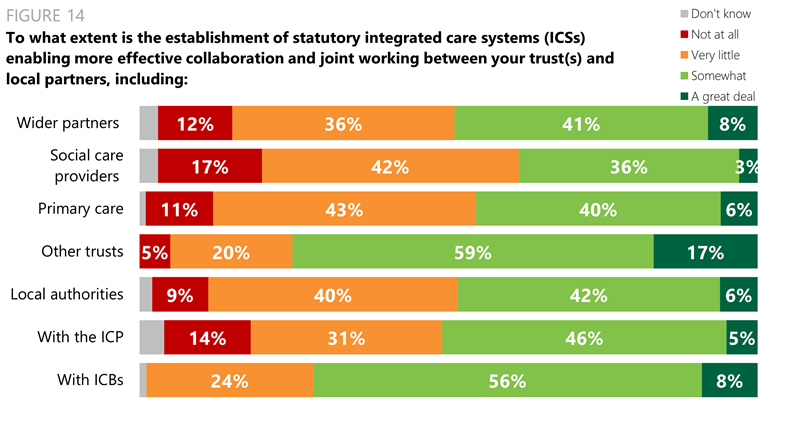
- Over three quarters of respondents (76%) said that the establishment of statutory ICSs was enabling more effective collaboration and joint working between their trusts and other trusts a great deal (17%) or somewhat (59%).
- This was followed by nearly two thirds (63%) saying that the establishment of ICSs was enabling more effective collaboration between their trusts and integrated care boards (ICBs) a great deal (8%) or somewhat (56%).
- When asked about the establishment of ICSs, nearly three fifths of trust leaders (59%) said there was very little (42%) or not any collaboration at all (17%) between trust(s) and social care providers.
Provider collaboratives
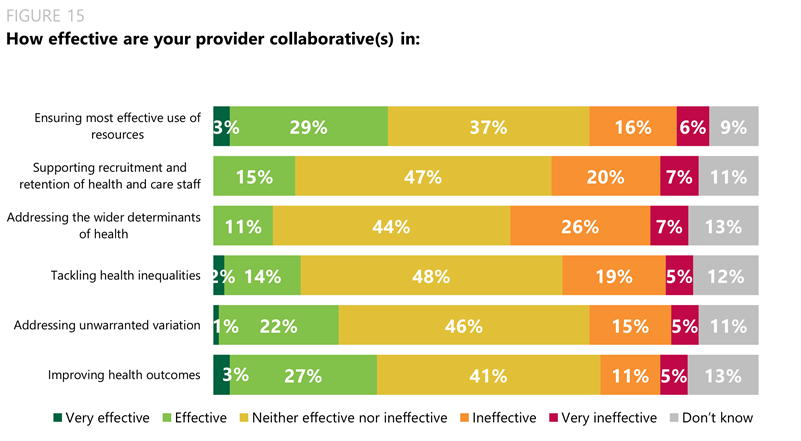
- When asked about how effective their provider collaboratives are across a range of outcomes, respondents saw provider collaboratives as being effective at managing use of resources, with 31% saying they were very effective (3%) or effective (29%).
- From the list of options provided, provider collaboratives were seen to be least effective in addressing the wider determinants of health, with about one in 10 (11%) saying their provider collaborative was very effective in this regard, but two thirds (33%) reporting provider collaboratives to be very ineffective (7%) or ineffective (26%) in this regard.
Place-based partnership(s) arrangements
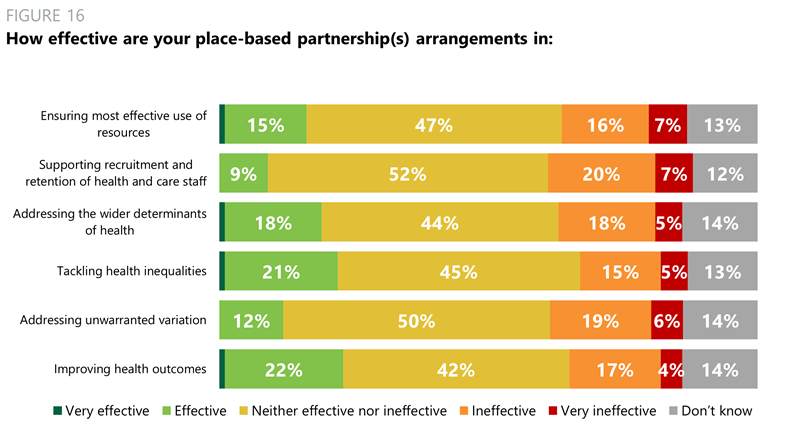
- When asked about how effective their place-based partnership arrangements are across a range of outcomes, respondents identified place-based partnerships as being most effective in improving health outcomes with 23% saying they are very effective (1%) or effective (22%).
- From the list of options provided, respondents identified place-based partnerships as being least effective in supporting recruitment and retention of health and care staff with less than one in 10 (9%) saying they were effective and 27% saying they were very ineffective (7%) or ineffective (20%).
- Overall, however, respondents were likely to select neither effective nor ineffective in response to this question.
Confidence that ICSs will support tangible improvements against the four key purposes of system working over the next year
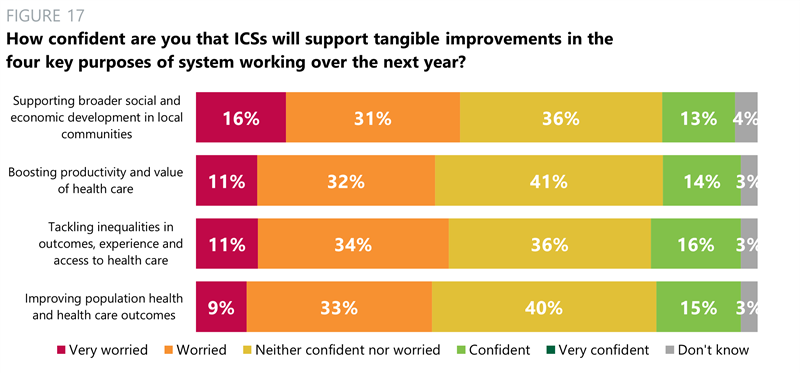
- Looking at how confident trust leaders are that ICSs will support tangible improvements in supporting social and economic development in local communities, 13% were confident, 36% were neither confident nor worried, 31% were worried and 16% were very worried. 4% did not know.
- When asked about boosting productivity and value of health care, 14% were confident, 41% were neither confident nor worried, 32% were worried and 11% were very worried. 3% did not know.
- Similar proportions were observed regarding tackling inequalities in outcomes, experience and access to health care, as 16% were confident, 36% were neither confident nor worried, 34% were worried and 11% were very worried. 3% did not know.
- Lastly, when asked about improving population health and health care outcomes, 15% were confident, 40% were neither confident nor worried, 33% were worried and 9% were very worried. 3% did not know.
What are the biggest challenges facing your ICS(s)? (Please select three answers only)
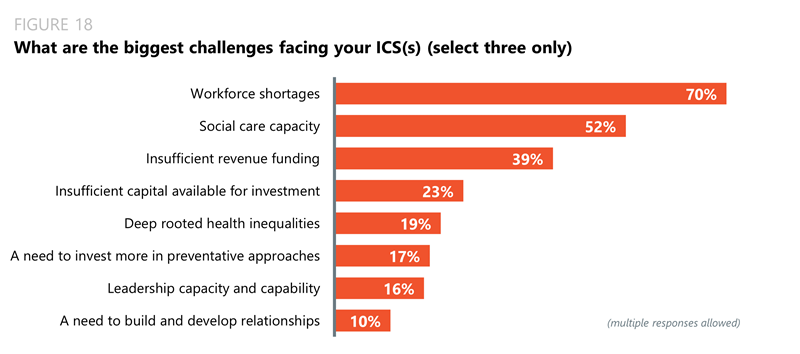
- When asked about the top three biggest challenges facing their ICS(s), trust leaders selected workforce shortages (70%), social care capacity (52%) and insufficient revenue funding (39%).
Confidence that ICBs will invest sufficiently
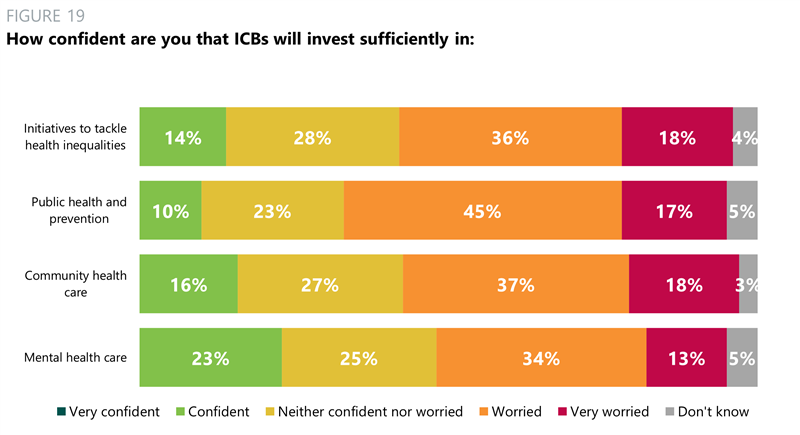
- When asked about how confident trust leaders are that ICBs will invest sufficiently in initiatives to tackle health inequalities, 14% were confident, 28% were neither confident nor worried, 36% were worried and 18% were very worried. 4% did not know.
- One in 10 (10%) trust leaders were confident that ICBs will invest sufficiently in public health and prevention, whereas 23% were neither confident nor worried, 45% were worried and 17% were very worried. 5% did not know.
- Looking at how confident trust leaders were about ICBs investing sufficiently in community health care, 16% said they were confident whereas 27% were neither confident nor worried, 37% were worried and 18% were very worried. 3% did not know.
- Lastly, when asked how confident trust leaders were that ICBs will invest sufficiently in health care, over one in five (23%) were confident, 25% were neither confident nor worried, 34% were worried and 13% were very worried. 5% did not know.